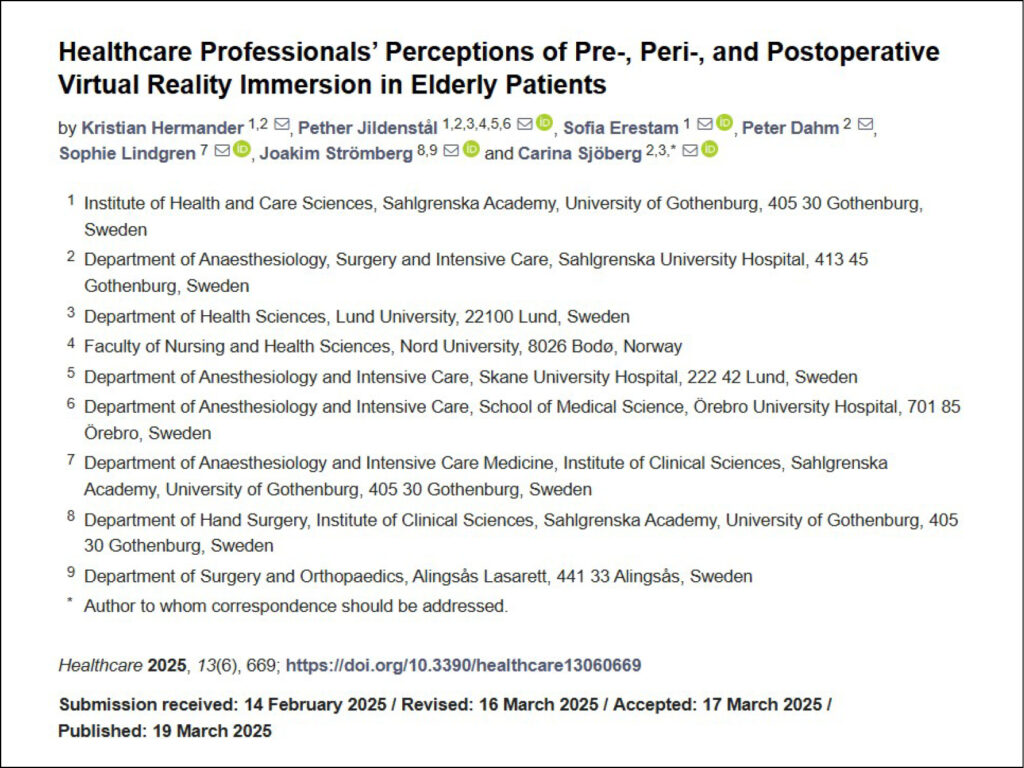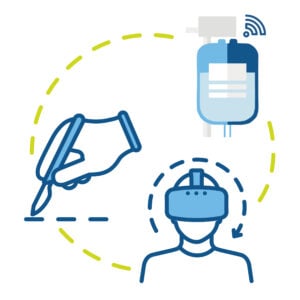Forskningsartikel: Virtuel virkelighed som støtte til ældre patienter under operation
Kan Virtuel Reality (VR) hjælpe ældre patienter med at føle sig tryggere og mere afslappede under operationer? I forskningsprojektet OPTIMIZE fokuserer undersøgelsen på Anæstesiologisk afdelings sundhedspersonale på Sahlgrenska University Hospital og hvad de mener om brug af VR eller lignende til ældre patienter under operationer med regional anæstesi og sedation.

The study, published in the journal Healthcare, explores opinions on possibilities and challenges of integrating VR into the treatment of this patient group. The researchers have interviewed 17 healthcare professionals to understand their experiences and attitudes towards the technology. The results show that there is a general openness to using VR as a method to reduce anxiety and pain. VR can be used as a distraction before, during and after surgery, which may provide an opportunity to improve the patient’s experience.
Pros and cons of using VR during surgery
The study identifies that the personnel notice several positive aspects on VR. The general perception is that technology has potential to reduce patients’ need for sedative medications, which not only offers the opportunity to improve patient safety but also leads to financial saving in the healthcare system. In addition, reduced medication use can contribute to a more sustainable health sector by minimizing the environmental impact of medication and disposable material. However, the research also points to several perceptions of challenges. Although many health professionals view VR as a promising option, some expressed concerns about technological discomfort and others about challenges of nausea. The ability of elderly patients to use VR varies, which places demands on both the design of the technology and the implementation in clinical practice.
What does this mean for future healthcare?
The study participants suggested potential applications areas for VR during surgery but also identified limitations and risks. They suggested that VR is likely to have a positive impact on sustainable healthcare as well as economic benefits. For successful implementation, the equipment must be safe. There must also be a clear division of responsibilities for its functionality and suitability for its users.
